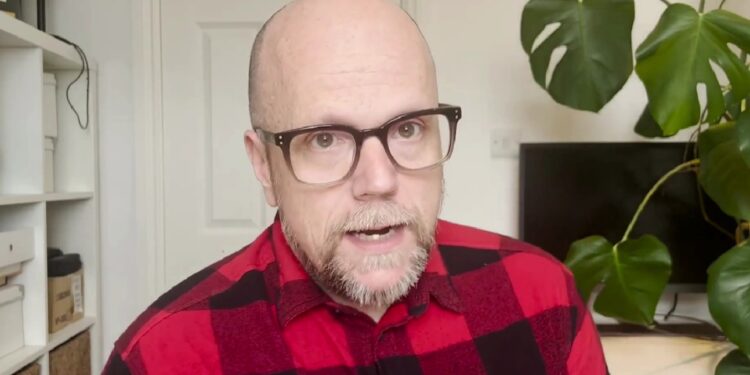Rhys Williams has claimed his wife felt forced to leave her job after her employer refused to adjust her hours to allow her to take care of their sick son.
This is according to the director of Quietroom, who spoke at Protection Review’s ProtectX8 online conference today with a session on using stories to highlight the importance of taking out protection insurance.
Reflecting on his own personal experience, Williams (pictured) told delegates about his son, who certain sections of media would describe as a “ghost child” or persistently absent.
Williams explained one in four children across the UK fall into this category, adding he did not like the term as his son is one of this number.
“My 14 year old son has only been to school for six days in this academic year and probably only 10 days in the last 18 months,” Williams revealed.
“He has been physically ill – frequent severe migraines. He has been mentally ill – problems, sleeping, eating, leaving the house.
“He is very likely to have some form of neurodivergence – probably Autism.”
Williams added the impact of his son’s illness had had a “massive” impact of the family.
“I’ve had time off work because of the strain it’s put me under,” he continued.
“My wife has had to leave her job because her employer refused to adjust her hours to allow her to support our son,” Williams claimed.
“As you can gather, my son has lots of problems. But he’s not a ghost. He’s a living, breathing boy.
“You can’t hope to understand him, or us or our predicament if you bury his story inside a big number or an unhelpful metaphor.”
But Williams revealed he also found conversations about how to make the protection industry more human “a little silly”.
“What we do is inherently human,” he added. “We help people in their darkest hours.
“Behind every life insurance claims there’s a bereavement – somebody’s husband or wife or mum or dad that’s not there anymore.
“Behind every critical illness claim there’s a moment in a doctor’s surgery where someone hears words that seem to stop the world.
“Behind every policy there’s a person. Behind every person there’s a life.
“And our lives are made up of experiences, memories, moments.
“And the way that we give meaning to all of that is stories.”
Consequently, Williams concluded that if the sector wants people to search online or call about taking out protection, it needs to tell stories.
“So if you want someone to care, care enough to search online about life insurance or call you up about income protection, care enough to keep an income protection policy that they’re thinking of cancelling, care enough to write a good news story about our industry when they were thinking of slagging us – then numbers are not going to be enough no matter how big they are.
“What you need is stories.”






